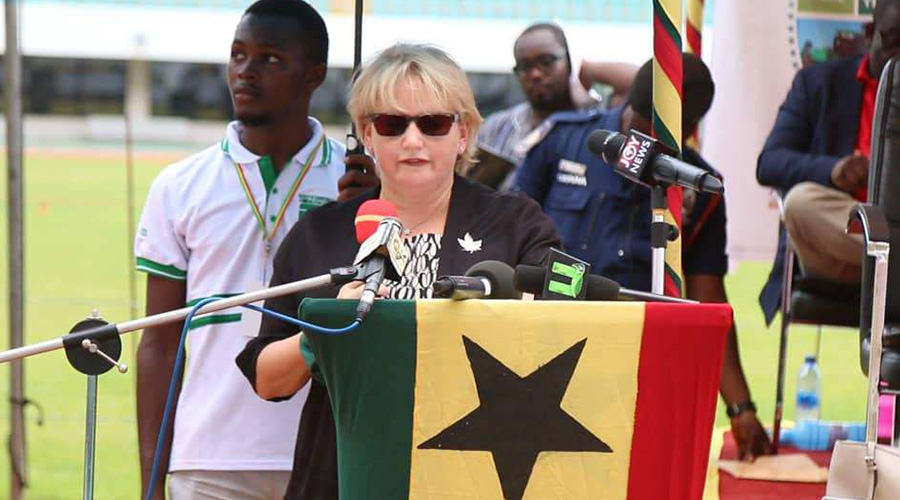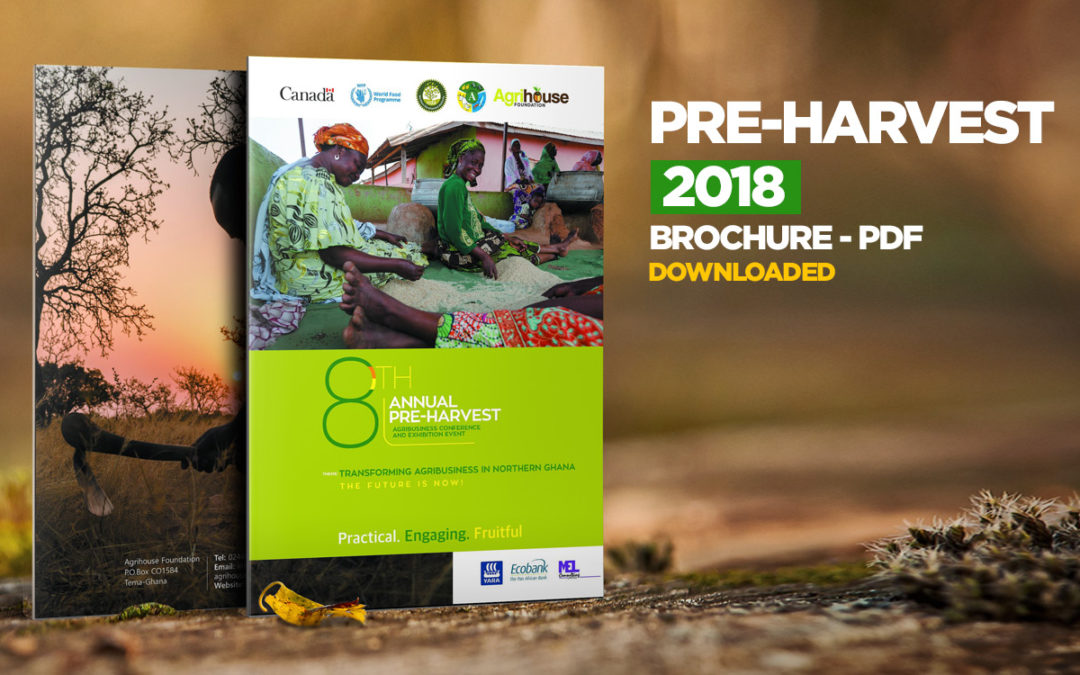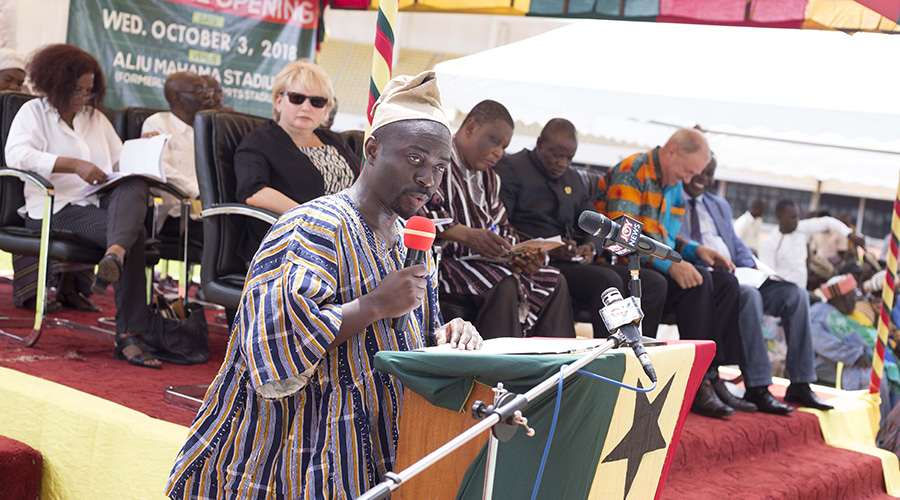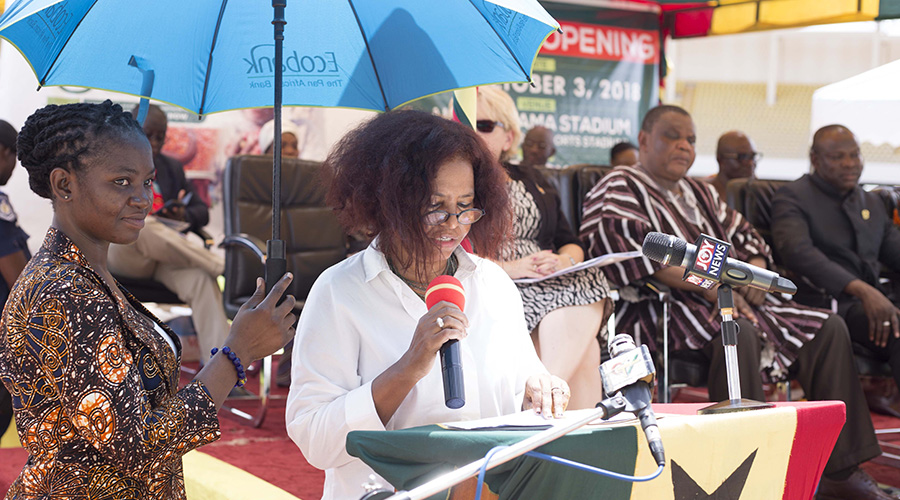
REMARKS BY HIGH COMMISSIONER OF CANADA TO GHANA AT THE OPENING CEREMONY OF THE 8TH PRE-HARVEST EVENT TAMALE, OCTOBER 3, 2018
Your Excellency, the theme for this year’s event – “Agribusiness in Northern Ghana, the Future Starts Now” – could not have been better chosen. Now, more than ever, Ghana is counting on a strong performing agriculture sector to transform its economy, to foster strong social and economic progress throughout the country. Ghana has made significant progress over the last decades. Canada is proud to have been a partner in this progress.
However, there are still gaps to be addressed: according to the latest Ghana Living Standards Survey, 6.8 million Ghanaians are living in poverty today; among these 2.4 million live in extreme poverty. These figures are particularly pertinent here in northern Ghana, where poverty rates are highest and inequalities are increasing. Since rural households are among the poorest and most vulnerable, agriculture is key to both reducing poverty and inequality.
Your Excellency, Canada recognizes the importance of the agriculture sector as an engine for Ghana’s inclusive growth. Over the last decade we have partnered with the Government of Ghana, NGOs, and multilateral institutions to support rural economic development, reduce poverty and enhance food security. Today, agriculture is without any doubt the sector that receives the largest portion of our bilateral funding in Ghana. Last year alone, Canada provided more than 100M Cedis to help support farmers and agribusinesses in Ghana.
One of the objectives of our partnership to modernize agriculture program is to enable regions and districts to provide effective agriculture extension services: to visit farmers regularly; to set up demonstration sites and adaptative trials; and, to organize study tours and field visits. As a result, in 2017, Government of Ghana public extension officers were able to prepare 2,534 demonstration sites across the country, reaching nearly 130,000 farmers, including more than 50,000 women. This program is also helping to revise the agricultural extension system to make it more market-focused and gender-sensitive. A new curriculum is now being taught in five agricultural colleges, including at the Pong-Tamale College. The young women and men that graduate from this program will be well-equipped to enter the workforce as extension officers or to start their own successful agribusinesses.
In 2017, the Research-Extension-Linkage-Committees, enabled farmers to bring 51 agricultural issues to the attention of researchers. Climate-smart solutions to these issues are now being developed and tested. And the results need to be communicated back to the farmers, through extension officers.
Canada is also working with a variety of partners to support agricultural value chains in Ghana. Through our work with the World Food Program, more than 5,000 farmers have been able to improve their average production yields, as well as their revenues derived from the sales of maize, cowpea, millet and soybeans. Canadian support has also been used to increase local agro-manufacturing capacity in Kumasi and Sunyani and to connect these manufacturers to local farmers. As a result, there is now more locally-transformed nutritious food available in Ghana and many jobs have been created.
In Upper West Region, our work with MEDA has contributed to creating a soybean value-chain for more than 21,000 women farmers. These women have increased their access to land by 72% over the last year. They have also been able to generate over 250% profit on their investments in dry-season gardens. As a result, these women are now recognised as real contributors to the economy of their communities.
Your Excellency, as these examples show, Canada’s development support is helping to transform agriculture and develop agri-business in Ghana. It is fostering economic growth that benefits everyone, leaving no one behind. But our efforts do not end there. We also have a growing trade relationship that benefits the agriculture sector.
The Canadian private sector also has an increasing interest in investing in Ghana. In the past year, two smart-agriculture business delegations from Canada have visited Ghana. These successful missions have identified several potential areas of collaboration, particularly around livestock management and climate-smart agriculture. The Trade Facilitation Office of Canada (TFOC) is also working closely with the Ghana Export Promotion Authority to, for example, help Ghanaian cocoa exporters to improve their knowledge of the Canadian market place, and the opportunities and requirements to successfully export to Canada. I hope that one of you here will become an exporter to Canada.
Your Excellency, the “Ghana Beyond Aid” agenda will only be achieved if women and girls are given equal opportunities to succeed. I am encouraged to know that this pre-harvest event has dedicated sessions to promoting the business interest of women and youth. And I am pleased to see some of the women farmers that Canada has supported represented here.
Your Excellency, the pre-harvest event represents an opportunity for farmers and agro-entrepreneurs to expand their businesses and to create new partnerships to promote the growth of Ghana’s agricultural sector. I hope it will create new opportunities, in particular to women entrepreneurs.
May everyone benefit from attending this event and may it help to riase incomes, create jobs and strengthen your productivity.
Thank you to all of the sponsors and to the participants. Best wishes for a successful harvest!
Thank you.




